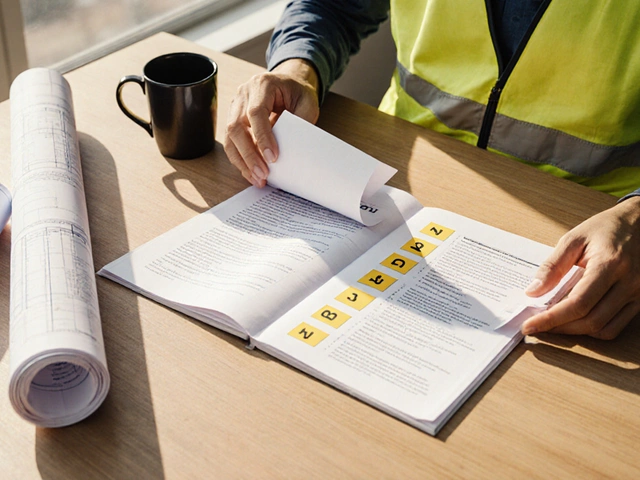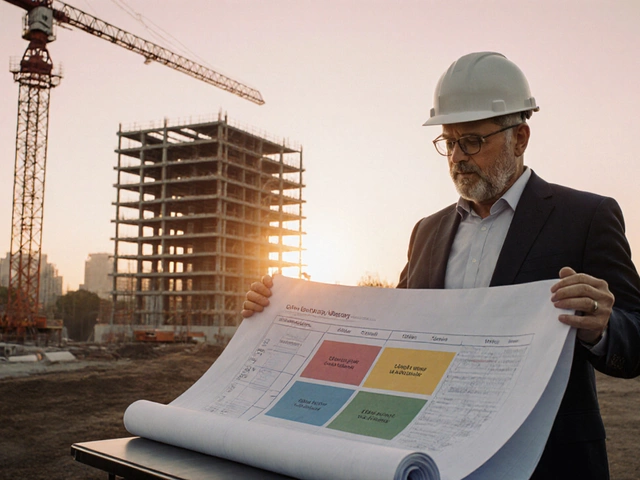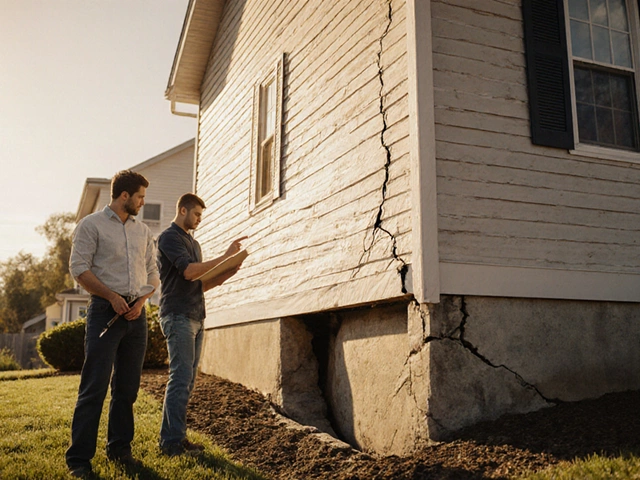Ever wonder what exactly a Tier 1 contractor does and why they're important in the construction world? Well, you're not alone. These guys are the big shots in the industry, taking charge of massive projects and ensuring everything runs like a well-oiled machine. Whether it's building a skyscraper, a large hospital, or a national highway, Tier 1 contractors are at the helm.
But what sets them apart from the rest? For starters, Tier 1 contractors have the resources and expertise to handle significant, complex projects. They've got teams of skilled professionals in various fields, along with advanced equipment and technology to tackle tough assignments. Their reach isn't just local; these contractors often work nationally or even internationally.
- Definition and Role
- Key Responsibilities
- How They Differ from Other Tiers
- Choosing the Right Contractor
Definition and Role
So, what's this whole Tier 1 contractor thing about? In a nutshell, a Tier 1 contractor is at the top of the food chain in the construction industry. They're like the quarterbacks of major projects, calling the shots and making things happen.
Their main job is to oversee and manage large-scale construction projects. We're talking about big deals here, like those jaw-dropping skyscrapers or massive infrastructure projects. They coordinate everything from design to the actual build, making sure deadlines and budgets are met. It's a lot like conducting an orchestra where every part has to work in harmony.
Key Features of Tier 1 Contractors
- Massive Resources: These contractors have access to vast resources—be it tech, equipment, or manpower—which are crucial for handling large projects.
- Expertise: They employ specialists in various fields, ensuring they have the right people for each task.
- Global Reach: Many Tier 1 contractors operate internationally, making them adept at dealing with diverse regulatory environments and standards.
- Risk Management: With great projects come great risks. Tier 1 contractors excel in anticipating challenges and coming up with solutions quickly.
It's worth noting that these key players often partner with other suppliers and subcontractors to bring a project to life. This collaboration includes negotiating terms, setting expectations, and ensuring everyone sticks to the project plan. They are like the glue that holds every part of the project together, ensuring a smooth delivery.
| Project Type | Example |
|---|---|
| Infrastructure | National highways, bridges |
| Commercial Buildings | Office complexes, shopping malls |
| Industrial Facilities | Factories, plants |
So, if you dream of bringing a huge construction project to fruition, a Tier 1 contractor could be your best bet, given their ability to manage and execute complex ventures with precision and efficiency.
Key Responsibilities
Being a Tier 1 contractor isn't just about wearing a hard hat and pointing fingers. These contractors juggle a ton of tasks that keep construction projects on track. One of their biggest roles is overseeing the entire project lifecycle, which means they have their hands in everything from the initial planning stages to the final handover.
Managing the Workforce
Tier 1 contractors are like the conductors of an orchestra. They've got to ensure that all the skilled workers, from engineers to builders, work in harmony. This includes hiring the right people, scheduling shifts, and ensuring everyone knows their role.
Budget and Cost Control
Another key task is keeping an eye on the money. With projects sometimes costing millions, cost overruns can spell disaster. Tier 1 contractors use their budgeting skills to predict costs and negotiate deals to keep spending in check.
- Resource Allocation: Effective use of materials and machinery without wastage.
- Cost Reporting: Regular updates to stakeholders to ensure transparency.
Risk Management
In construction, things can go south quickly. Maybe it's bad weather or supply chain hiccups. Tier 1 contractors plan for these bumps in the road, reducing risks before they become real problems. This involves routine site checks, adjusting strategies on the fly, and ensuring safety standards are spot-on.
Client and Stakeholder Communication
They've got to keep everyone in the loop. Regular updates, progress reports, and dealing with changing client needs ensures that the project heads in the right direction, aligning with everyone's expectations.
In a nutshell, a Tier 1 contractor is like a project manager on steroids, pulling everything together while tackling a myriad of responsibilities. They've got to be detailed and proactive, ready to handle the ups and downs of big-time construction.

How They Differ from Other Tiers
When figuring out how a Tier 1 contractor stands out, it's all about scope, resources, and responsibilities. These contractors are at the top of the construction hierarchy. They're the ones you call in for those massive, complex projects that need top-notch coordination and management.
Scope of Projects
While Tier 2 or 3 contractors might tackle smaller, more localized projects, Tier 1 contractors are built for the big leagues. Think major infrastructure – we’re talking highways, airports, and large-scale commercial buildings. They have the bandwidth and structure to manage multiple large projects simultaneously, something lower-tier contractors may struggle with.
Resources and Expertise
A major difference lies in their access to resources and expertise. Tier 1 contractors have large teams filled with specialists in various fields from engineering to project management. They deploy advanced technology and machinery that's often not accessible to smaller contractors.
Networking and Relationships
Because of their scale, these contractors often have well-established relationships with suppliers and subcontractors. This means they can negotiate better deals and have a reliable pool of partners to pull from, ensuring that projects stay on track and within budget.
| Tier Level | Typical Projects | Examples |
|---|---|---|
| Tier 1 | Large infrastructure, skyscrapers | National construction companies |
| Tier 2 | Regional commercial buildings | Medium-sized enterprises |
| Tier 3 | Local residential projects | Small local firms |
Financial Capability
Finances are a big deal in construction. Tier 1 contractors often have the backing and financial stability to secure funding for enormous projects. They deal with significant budgets and are experienced in managing financial risks effectively.
In a nutshell, it’s their reach, resources, and relationships that set Tier 1 contractors apart, allowing them to handle projects with higher demands and expectations compared to other tiers.
Choosing the Right Contractor
Picking the right Tier 1 contractor for your project can be a make-or-break decision. It's crucial to get it right because these contractors will pretty much run the whole show. But how do you know which one is the best fit?
Check Their Track Record
First things first, look at their past work. A successful track record of completed projects, especially ones that are similar to what you’re planning, is a good sign. You’ll want to know if they have history dealing with complex builds like the one you're dreaming about.
Consider Their Resources
Next, think about their resources. A top-notch Tier 1 contractor should have a solid team of experts and state-of-the-art equipment. This means they can tackle unforeseen challenges without sweating the small stuff.
Reputation Matters
Don’t forget to check out their reputation in the industry. Are they known for delivering on time and within budget? Do they have a positive working relationship with subcontractors and suppliers? These factors can save you a lot of headaches down the road.
Evaluate Their Risk Management
Risk is a big part of construction projects. Make sure your contractor has a robust risk management strategy. You don't want any nasty surprises halfway through the project. Ask them how they plan to handle potential setbacks.
Get Multiple Quotes
Finally, don’t just settle on the first contractor you talk to. Get quotes from several and compare them. It's not all about price—look at the value they offer and how well they understand your project vision.
Choosing a Tier 1 contractor isn't just about finding someone who can get the job done; it's about finding a partner who can bring your project to life smoothly and efficiently.







